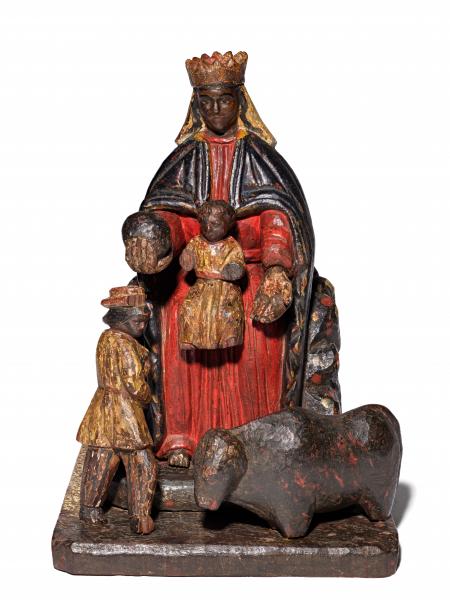Po’Pay
Before the United States existed, Indigenous communities established distinct cultures throughout the Americas. They had their own languages and ways of life. Many of these communities fought against the violence of European colonization. Some are still fighting today. Po’pay was a Tewa religious leader. He led the 1680 Pueblo Revolt against Spanish colonization in present-day northern New Mexico. Po’pay had been arrested by the Spanish for practicing Puebloan religious rites. He began organizing the Pueblo Revolt shortly after his release. He led a joint force of Pueblo, Apache, and mixed Indigenous-Spanish communities. They chased Spanish colonists out of New Mexico. Colonial forces did not return for 12 years.
I have sought to tell the story of the 1680 Pueblo Revolt, also referred to as the First American Revolution. . . . a historic event that . . . is not taught in schools, or included in textbooks; it has been swept under the carpet for far too long.
Virgil Ortiz
Connecting to the Present
Despite colonization Indigenous peoples have maintained and strengthened cultural traditions. New generations of Indigenous youth are enlivening traditional dance, knowledge, religious practices, language, and more.
In Puerto Rico, for instance, the Indigenous Taíno community is reviving ancestral knowledge. One example is the use of the ancient Taíno medicine, cohoba, a mixture of ground seashells and beans of the cojóbana tree which is inhaled through the nose. Another example is the areíto or ceremonial dance and song practiced by women and girls of the nonprofit corporation, Concilio Taíno Guatu-ma-cu a Borikén, in Puerto Rico’s Susúa forest. This site is significant for the Taíno community and is where they hold an annual naming ceremony that is open to the public.






